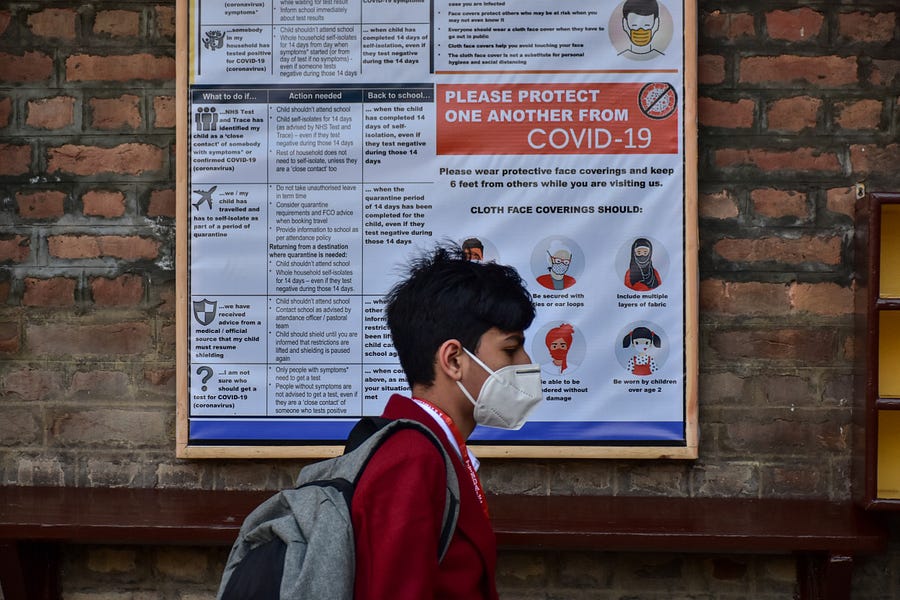A widely shared Facebook post is claiming that mask-wearing causes “pneumonia and hypoxia.” The full text reads as follows: “When you exhale your body is eliminating toxins and unhealthy bacteria. By wearing a mask the toxic matter is trapped on the fabric and you’re inhaling it back in, causing infections like bacterial pneumonia and hypoxia.”
This is a false statement. Mask-wearing does not cause bacterial pneumonia and hypoxia.
Dr. Megan Conroy, a pulmonary and critical specialist and assistant professor at the Ohio State University College of Medicine, says the “lungs are not a means of appreciable elimination of toxins from the body, and is not a clearance system of bacteria or viruses by our breath.”
The respiratory tract, she explained, isn’t a sterile place and there’s a variety of bacteria that live in the mouth and the upper respiratory tract. If they are aspirated into the lower respiratory tract, in the right kind of situations, that may cause pneumonia, but rebreathing your exhaled air is not a risk factor or a mechanism for the development of bacterial pneumonia.
Conroy says she’s seen no studies providing evidence that mask-wearing increases risks of bacterial pneumonia. “Applying the evidence,” she said, “would actually lead you to quite the opposite conclusion in that it is well-known that after viral infections like COVID or influenza, bacterial pneumonia (or what we call secondary bacterial pneumonia), is a frequent complication.” There’s a lot of data that shows mask-wearing reduces your chance of getting COVID-19 or other respiratory viruses, which reduces the risk for post-viral or secondary bacterial pneumonia, she said.
Conroy also disputes the claim that “mask-wearing causes hypoxia.” Hypoxia, she said, is a medical term for low oxygen levels. “There’s no evidence that wearing a mask impairs oxygen delivery or carbon dioxide elimination from the body.”
As noted in a previous fact check, masks do not make it impossible to breathe in enough oxygen: “Face masks do not obstruct oxygen flow or cause dangerous levels of carbon dioxide inhalation. When asked if masks pose a risk to wearers, Dr. Thomas Bice, an assistant professor of medicine specializing in prolonged mechanical ventilation and pulmonary diseases at the University of North Carolina Chapel Hill’s medical school, responded: ‘Will you be able to capture my eye roll?’ ‘The size of an oxygen molecule is so small that there’s no way that a mask could restrict the movement of oxygen across the mask,’ Bice told The Dispatch Fact Check. ‘There may be a slight increase in carbon dioxide levels inside the mask relative to outside, but that would be so minute so as to not cause any issues.’”
Neysa Ernst, nurse manager of Johns Hopkins Biocontainment Unit, also confirmed that such claims are false. “I am not aware of any studies that have shown the mask-wearing causes either of these conditions,” said Ernst.
If you have a claim you would like to see us fact check, please send us an email at factcheck@thedispatch.com. If you would like to suggest a correction to this piece or any other Dispatch article, please email corrections@thedispatch.com.







Please note that we at The Dispatch hold ourselves, our work, and our commenters to a higher standard than other places on the internet. We welcome comments that foster genuine debate or discussion—including comments critical of us or our work—but responses that include ad hominem attacks on fellow Dispatch members or are intended to stoke fear and anger may be moderated.
With your membership, you only have the ability to comment on The Morning Dispatch articles. Consider upgrading to join the conversation everywhere.